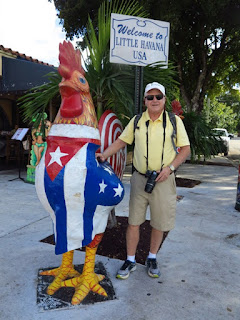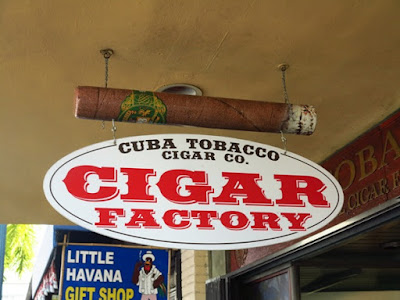Miami, Florida is known for white sand beaches and
high-profile celebrities with fabulously elegant homes. But there’s much more
to see and do in this waterfront city. On a recent trip we discovered two intriguing
neighborhoods that provide glimpses into very different cultures.
WynwoodArts District is a unique, funky area in midtown
Miami. More than 70 art galleries, antique shops, bars and restaurants attract both
locals and visitors. But what makes it one of the most creative communities in
the U.S. is dozens of graffiti murals spray-painted on the walls of buildings.
The result is one of the largest open-air street art installations in the
world.
Neglected, old warehouses in the former manufacturing
district of Miami were taken over by developers when factories closed. These
were transformed into numerous art complexes—a true museum of cutting-edge
painted walls.
These creations are not the result of teen-age
mischief; they are truly artistic paintings done by hand with ordinary spray
paint cans. Most have positive messages or bold geometric designs. All are fun
to look at and enjoy.
With the introduction of Second Saturday Art Walk
and the arrival of the Art Basel fair in 2002, Wynwood has seen unexpected
growth in a relatively short time. Locals and visitors looking for a hip place
to go for nightlife have discovered this reinvented section of the city.
Miami’sLittle Havana is a vibrant Spanish neighborhood that
is home to Cuban immigrants (more than 300,000 people migrated to Miami in the
1980s) and others from Central and South America. It’s a community where everyone
speaks Spanish, and most of the inhabitants never learn English.
Little Havana is considered the epicenter of Cuban
culture and heritage in the U.S. That distinct character brings in tourists, especially
during annual festivals like Calle Ocho Festival or Cultural Fridays, The Three
Kings Parade, and Viernes Culturales.
Since the district is famous for old-world cigar
shops, we visited the Cuba Tobacco Cigar Company, one of the oldest cigar
factories in the city, where we watched cigars being hand-rolled. Shops along
the main street are filled with the aroma of strong Cuban coffee, which many
offer free of charge to visitors. Other quaint shops include botanicas—folk medicine
stores.
A famous landmark is Domino Park (Maximo Gomez
Park), the heart of Cubans’ social gathering. People come daily to play dominoes
and discuss anything on their minds.
 Little Havana is a popular place to go for Cuban
food, cultural activities, and live shows. Monuments and murals bring to life
the history of Cuba, including the Bay of Pigs. Visitors can take guided
walking tours or tours that focus on food for a delicious taste of Miami.
Little Havana is a popular place to go for Cuban
food, cultural activities, and live shows. Monuments and murals bring to life
the history of Cuba, including the Bay of Pigs. Visitors can take guided
walking tours or tours that focus on food for a delicious taste of Miami.












No comments:
Post a Comment